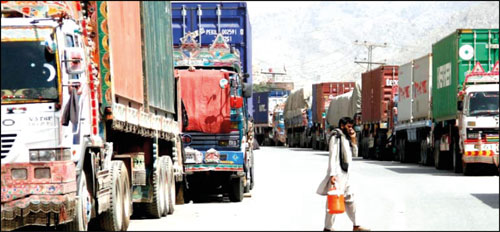In a report to the US Congress, the Special Inspector General for Afghanistan Reconstruction (SIGAR) noted that since the Taliban assumed power in Afghanistan in August 2021, overall border traffic into and out of the country has declined by 40–50% annually.
According to the SIGAR report, Afghanistan’s neighbors have limited transit and trade due to political turmoil, border security concerns, and criminal activity including the smuggling of people and drugs, and refugee flows.
SIGAR report relies on data from Pakistan, according to which the amount of goods imported by Afghanistan from Pakistan between July 2021 and May 2022 fell by 38% compared to the same time last year.
In contrast, there was a 34% increase in Afghanistan’s exports to Pakistan between July 2021 and May 2022.
Expanded coal exports to Pakistan, according to SIGAR, which the Taliban increased in an effort to increase revenues from Afghanistan’s mining industry and take advantage of record coal prices, can be partly credited for this rise in exports.
The majority of cross-border activity includes the delivery of international aid, including the transfer of supplies and food from Tajikistan and Uzbekistan to northern Afghanistan, close to Mazar-e Sharif, the provincial capital of Balkh province in northern Afghanistan.
India pledged to supply approximately 50,000 tons of wheat to Afghanistan as humanitarian food aid as part of a special agreement with Pakistan.
The special agreement allowed the transport of the Indian consignments of wheat to Afghanistan at the Attari Wagah border Pakistan via overland transportation despite the transit trade agreement between the three countries does not permit the Indian goods to be transported to Afghanistan overland.
This comes as the government of the Taliban is not recognized by any country and the frozen foreign reserves of Afghanistan have not yet been released.—Khaama News Agency









